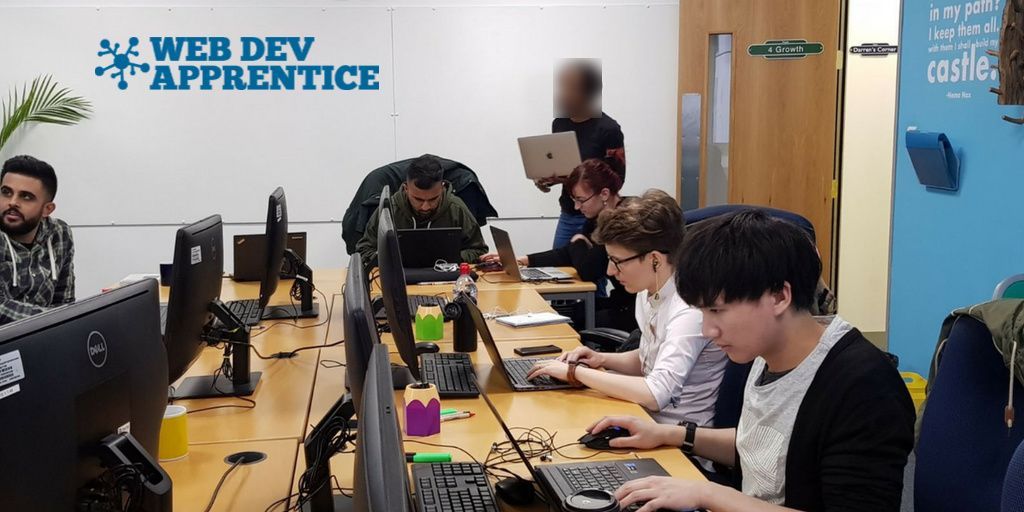
Web Dev Apprentice - Our Story

6 mins read
By Crispin Read - 22nd Sep 2020
Back in 2012 I got together with a bunch of developers to solve a problem - or, as it turned out - a few problems. We were about to create the first industry led digital apprenticeship and we had organised a hack day to thrash out some ideas.
We set about the day as if we were building software, we got some whiteboards and sticky notes and started to try and really understand the problem. The talent pipeline was effectively broken - universities and FE colleges were not teaching the things we needed people to know. Everybody was self taught, even if they had come through computer science or formal training with programming it was the experience of working with code or more accurately, it was the experience of working with people and code that was important.
We all quickly agreed the main objectives too:
- Secure the local talent pipeline
- Increase Diversity and Inclusion
- Promote knowledge share and best practise
We knew that there was a massive untapped resource of talent right next to us. A whole army of young people who were unnecessarily excluded from starting a career in development. These are the people we want to reach - the key indicators of potential for our line of work are not academic success or strong science and maths abilities. It is aptitude, enthusiasm, the ability to self teach and to understand logic and patterns. We don’t need to see a degree certificate we need to see drive.
We set out three ‘personas’ as we would do with building a web app
- The Industry
- The Apprentice
- The Business
We resolved to refer back to these personas to help us make good decisions about the direction of the project. We still use these today - what will this action or this change improve for The Industry, The Apprentice, The Business? Ideally everything we do should have a positive outcome for at least two.
At the time we (the developers) were all working within the same framework - Drupal. And so the Drupal Apprenticeship was born. We pooled together all the resources we were using to train our juniors and arranged it into a first version of the training curriculum.
We ran the first cohort straight away and that was followed by two more the following years. In 2015 we were asked by The Tech Partnership to join their trailblazer initiative to contribute to the creation of what became the Apprenticeship Standards Qualification for Software Development (Level 4). By that time I had moved to Leeds so we were able to include cohorts in Manchester, Leeds and Carlisle in the pilot and start to deliver outside of London.
Following on from the successes of the pilot we began delivering the brand new apprenticeship standards straight away. We continued to adapt and develop our curriculum and delivery with the rapid changes our industry constantly undergoes, gathering feedback and insight from employers, apprentices and community and business leaders. At this time we also decoupled the reliance on any specific frameworks and began to expand the scope of our training. First with similar php based content management systems like Wordpress, Joomla; then including support for JavaScript frameworks and app development.
In 2017 we started delivering across the country using online seminars and video meetings bringing apprentices from different cohorts together for longer residential workshops.
Now into 2020 where we have dropped the webdevapprentice.uk moniker and are pleased to be able to support any language or framework of software development. We have apprentices using .net, c#, ruby, Java as well as web and app development frameworks like Laravel, Symfony, Angular, Vue, React.
The curriculum is still under constant review and development - we refer to it as our living curriculum and we are using this same format and delivery framework to bring out new apprenticeships and training courses over the coming months. We are also maintaining our three pillars and everything we do will continue to benefit our communities as well as our customers.
If you would like to find out more, please drop me a message in the comments or via Twitter or LInkedIn or get in touch here on the site.
